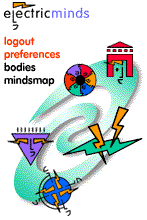
|

|

Beethoven's Fifth Symphony The third movement of Charles Ives's Concord Sonata ("The Alcotts") begins with a slow, quiet, lilting melody in a minor key that is naggingly familiar. After you've heard it repeated once or twice, suddenly it becomes clear: it is the familiar ba-ba-ba-BUM of Beethoven's Fifth Symphony turned upside down and inside out. In his "Essays Before a Sonata," Ives briefly discusses Orchard House, where Bronson Alcott and his daughter Louisa May lived. Ives says: "And there sits the little old spinet piano Sophia Thoreau gave to the Alcott children, on which Beth played the old Scotch airs, and played at the Fifth Symphony." Beethoven's Fifth Symphony was the closest thing the world of nineteenth-century music had to a hit single. The music crossed the Atlantic on paper, piano arrangements of it were published, and soon houses throughout New England were ringing to its exciting new sound, picked out on the spinets in their parlors. It seems incontestable that music is a part of everybody's life today. Everything from the station breaks on CNN to the pedestrian tunnels at the airport has a theme song, or at least a little fanfare. Bill Lear's car stereo and Akio Morita's Walkman, and their avatars, let us take music anywhere. Infantrymen in Vietnam listened to Jimi Hendrix overdriving tinny little speakers. Ravers blast out techno at all-night beach parties, couples marry on Mount Tamalpais to the strains of Bach, and one can't spend a day in the city without hearing the boom of the subwoofer. Most of us have heard, and can recognize, thousands of melodies, from the 1812 Overture to "Amazing Grace" to the theme from "I Dream of Jeannie" to the vile "Hey, Macarena."
Modern musical technology gives us access to a universe of music. For a hundred dollars, you can walk out of a store holding Richard Goode's performances of all of Beethoven's piano sonatas in your bag. It's not only possible but commonplace to see CDs by Brazilian pop groups, Hungarian choirs, Senegalese dance troupes, South African vocal ensembles, Japanese jazz pianists, and Australian punk bands on your record store's shelves. Charles Ives, whose own tastes were hugely eclectic, would find the variety miraculous. But how many people do you know who can play the piano? The piano is an astonishing artifact. As a musical instrument, it's without peer. It can play as quietly as a violin and as loudly as a trumpet. It can play both melodies and harmonies. A person with no musical education can learn to pick out a tune on it in less time than it takes to learn how to play a single note on a clarinet or flute. For all its abilities, it is compact enough to fit into an average home. For all its complexities, it is simple enough to be mass-produced. For a century and a half, the piano was one of the main conduits through which music entered most people's world. In ways, it is an unsatisfactory conduit. For all of the piano's capabilities, a piano transcription of Beethoven's Fifth Symphony is nothing remotely like an orchestral performance. The choice between listening to a teenage girl picking through the Fifth on an out-of-tune upright and listening to Leonard Bernstein conducting the New York Philharmonic on a stereo is an obvious one. But if you happen to be that teenage girl, the choice is not so obvious. The piano serves not just as a medium for playing music, but as a medium for learning music. The replacement of the piano by the stereo reveals a broad and disquieting shift in our relationship with music. At the same time that music is everywhere, very few of us are participating in its creation. Gone are the days where every beer garden in Germany and every park in America featured a dozen local musicians performing together every weekend. (Parks in America are commonly built without bandshells today. Fifty years ago this would have been unthinkable.) Gone are the days when, if you wanted to hear the latest song by Stephen Foster or George Gershwin, you bought the sheet music and tought yourself to sing it. We who once were enthusiastic producers have become consumers. But of course technology's effect has not been quite so cut-and-dried. Recording technology has not just given record buyers the ability to hear obscure traditional music. It has given musicians as dissimilar as Bela Bartok and David Byrne the tools to collect this music, study it, and incorporate what they've learned into music of their own. Charles Ives spent months in his studio performing the Concord Sonata over and over again while his hired copyist labored to get it all down; while transcription and notation software has cut into a once-lucrative sideline for struggling musicians, those musicians don't have to be insurance millionaires (as Ives was) to produce written copies of their own music. And the synthesizers that are reducing the entertainment industry's demand for session musicians are also giving young musicians tools for learning and performing that are even more versatile and capable than the piano. This points us to where the future of music lies: with how we manage our own relationship to it. We need to refuse to let the huge inventory of polished performances that we have at our fingertips mislead us into thinking that music is the property of an aristocracy of the talented. Making music is an experience that's available to us all. Anyone can sing a song, or pick out a tune on a Casio keyboard, or strum a guitar, or shake maracas. It takes patience with your own fallibility and a reluctance to be passive, but both of those things are available to all of us. As with love, the music that you take is equal to the music you make. |
rlauriston said: I narrowly avoided a car crash once--saw a truck losing control, floored the engine, looked in the rearview, and saw the truck jack-knifed across all four lanes of Interstate 80, and cars smashed up every which way. I think maybe that was when I refused to ride in cars for a couple of years. In any case it was much more disturbing than any of the three relatively minor crashes I was actually in myself. But it didn't make me horny--maybe that's because Rosanna Arquette wasn't along for the ride. Most Active Topics: Topic 108 Sites - Feedback from visitors Topic 98 C-Topia Zeit and Nancy Swim the Channel Topic 101 C-topia Prepping for Utne | |||
| ||||
Also in Technos: The Technology of Surgery Our New Cathedral Beethoven's Fifth Symphony | ||||
|
electric minds |
virtual community center |
world wide jam |
edge tech |
tomorrow |
conversations
Any questions? We have answers.
©1996, 1997 electric minds, all rights reserved worldwide.
|


